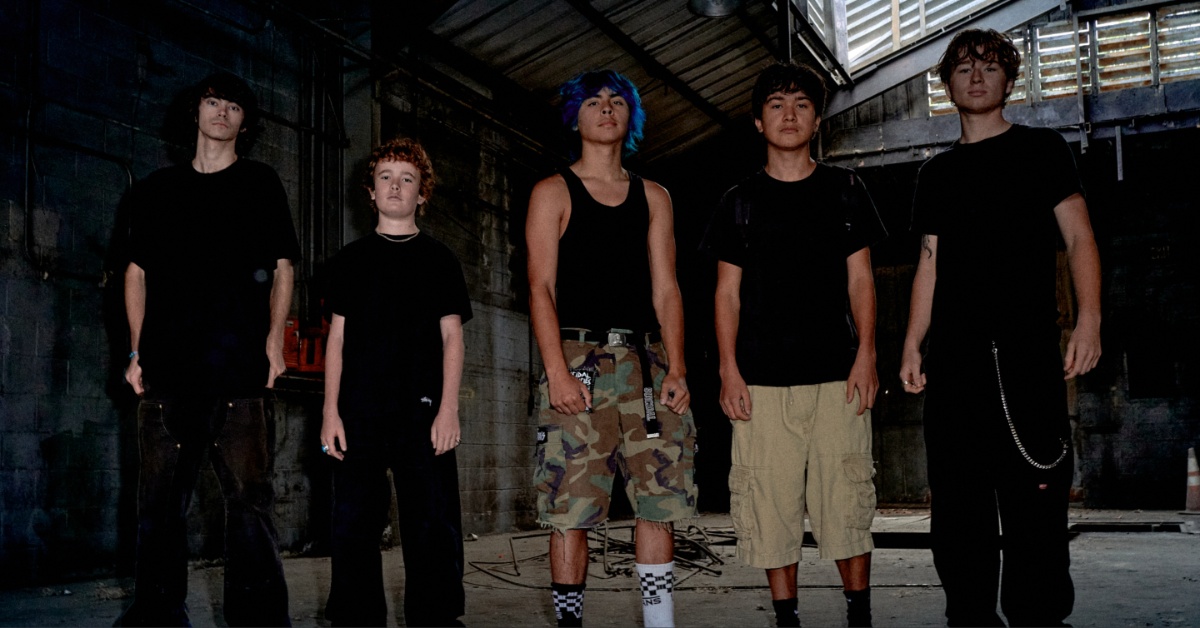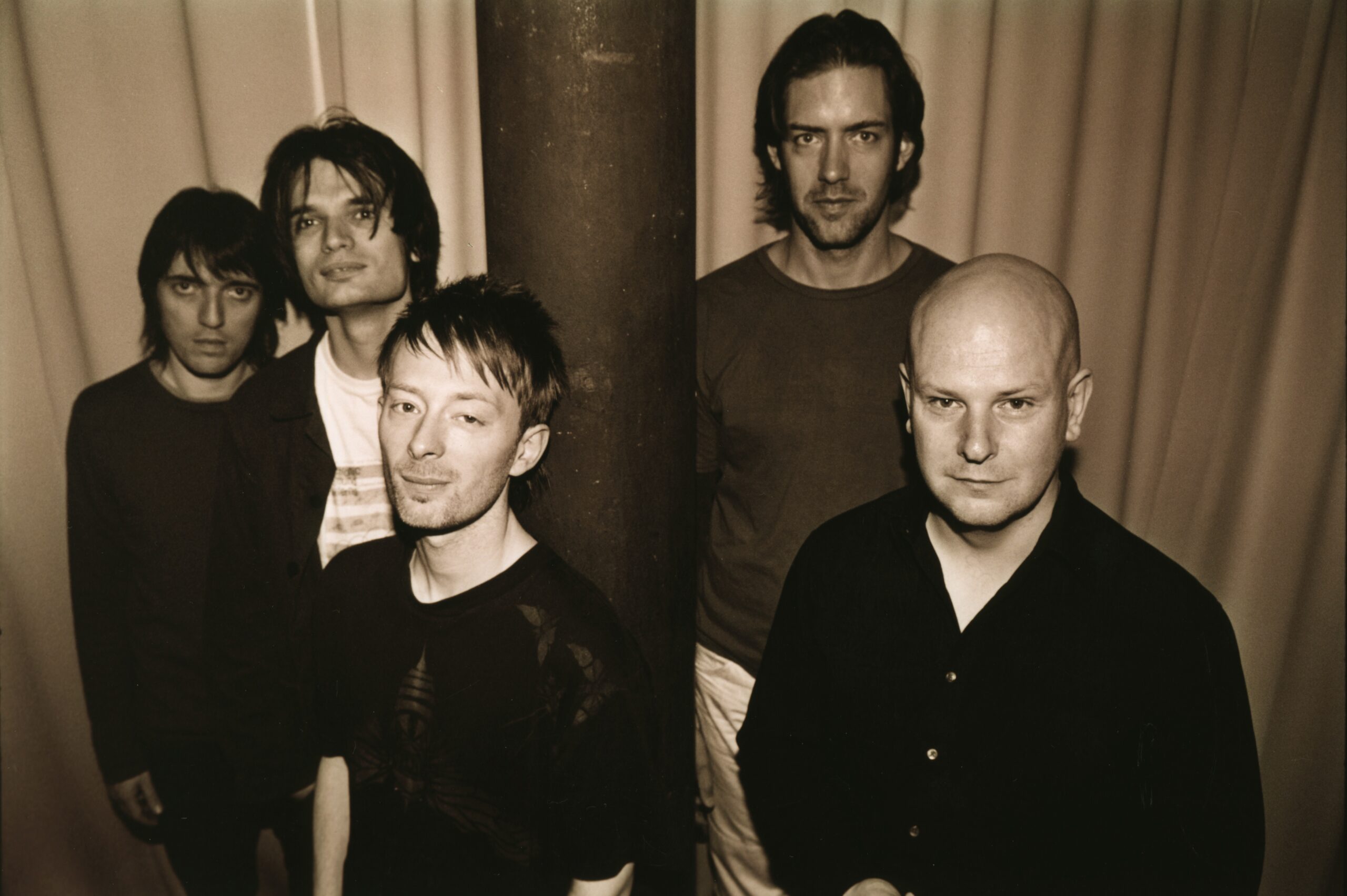
Source: jessica Care moore / jessica Care moore
In an exclusive interview with MadameNoire, jessica Care moore, the creative force behind Black Women Rock, opens up about her mission to uplift and celebrate Black women in rock and roll. As she gears up for 20 years of Black Women Rock on Saturday, August 31, and dreams of taking the show on a global tour, jessica passionately speaks about the power of community and the importance of creating your own opportunities. Her message to young Black women and aspiring artists is both inspiring and empowering: “You are the power source, and you have everything you need within you to succeed.” jessica’s journey is a testament to resilience, creativity, and the beauty of sisterhood.
MadameNoire: Let’s talk about the 20-year legacy of Black Women Rock. Tell us about your 20-year journey with the festival.
jessica Care more: On Saturday night, August 31, we’re at The Fillmore in Detroit for Black Women Rock. It’s going to be an electrifying stage filled with brilliant Black women who play rock and roll, funk, and defy the odds to make a living in an industry that only supports a few of us at a time.
It’s surreal that I’m still here after 20 years. I never imagined we’d still need to make space for Black women in Rock and Roll and educate people on the real history of the genre. Twenty years ago, I was a young producer at the National Black Arts Festival, which was one of the largest festivals in the country at the time. I came from the Black rock scene in New York City and wanted to bring that energy to the festival. I knew incredible artists like Angela Moore, Tamar-kali, and Imani Uzuri. Growing up in Detroit, I hadn’t seen Black women rocking out like that—mosh pits, shredding guitars. I wanted to bring that energy to the National Black Arts Festival, and they gave me space.
Our first concert featured Tamar-kali, Divinity Roxx—who’s toured the world with Beyoncé and often plays bass for us—and Imani Uzuri. The show was amazing. We had Marcia Jones painting live, and now, the show has grown to include four live painters and a curated art exhibition by Sabrina Nelson. It’s a whole weekend event now, with a visual element alongside the concert.
Since 2004, the biggest change is that I don’t let men play the show. Women lead their bands, and we have the Black Women Rock Orchestra—a full string and horn section. This isn’t just a DJ and performer; you’ll see 15 to 18 musicians on stage, many from Detroit. DJ Stacey “Hotwaxx” Hale, our house music legend, has joined us in the rock world and is having a blast. Kat Dyson, our musical director, has played with Cindy Lauper and Prince—these women are magical. Kimberly Nichole, one of the baddest singers in the world, just finished touring with Janelle Monáe. This show is about the culture creators who made artists like Janelle Monáe and Erykah Badu possible. It’s intergenerational, and we’re pushing the culture forward.
Grace Gibson from New Orleans, the daughter of actress Lynn Whitfield, is joining us this year. Her voice is going to take over The Fillmore. Watching people get blown away by these women gives me so much joy.
MadameNoire: Historically, the festival was held at the renowned Charles H. Wright Museum. This year, you’re playing The Fillmore, a significantly larger venue. What inspired the change of venue?
I wanted that marquee! But it is a large venue for us, and as independent Black women artists, we deserve the audience. So, I’m pushing hard. I’ve never bought ads before, but I did this year. We’re running ads on WJLB, and WDET. I just hope the community shows up. It’s easier to sell out a 500-seat venue than 2,700, but it’s the 20th anniversary.
We need people to buy tickets in advance. We don’t want a line around the corner on the day of the show. We have an incredible promotion—use code BWR20 for a $20 standing room ticket. It’s so affordable. If you want to sit down, tickets are about $50, but that’s still cheap. I see brothers spending $500 to see Drake—I need them to show up for us the way we show up for them. I’d love to see the floor covered in men supporting Black women. And women, bring your daughters, nieces, and grandmas too.

Source: jessica Care moore (Left) / jessica Care moore
MadameNoire: The festival also serves as a history lesson. Black Women Rock started as a tribute to Betty Davis, a Rock and Roll pioneer many might not know about. Let’s also talk about the women who will be on stage with you, including Nik West.
Nik West has been on tour with Lenny Kravitz all year, but she made sure to be here in Detroit. She’s a phenomenal bassist with a long purple mohawk—RollingStone called her the Queen of Bassists. It’s an edgy show, but it’s all ages. Little girls need to see these Black women who walk to a different beat. It’s a powerful, healing show—a revival.
I introduced Nik West to Detroit years ago, and she’s been coming back ever since. She’s incredible—her performance, her bass playing, her spirit. The first time she was on our show at Charles H. Wright, she even sat on our panel.
MadameNoire: You mentioned this was a weekend affair. What other events are taking place as a part of the festival?
This year, we have an artist talk on Sunday after the concert. It’s a community event where we discuss survival skills and how we take care of each other as Black women.
Divinity Roxx, for example, talked about having a negative bank account when she auditioned for Beyoncé. It’s about self-belief, the same belief that’s carried me as a poet and now as Detroit’s Poet Laureate.
The art exhibition opens on August 28 at the Motown Museum in Hamtramck, and it’s free. We’re tributing Sister Rosetta Tharpe, who created rock and roll, Betty Davis, Grace Jones, Tina Turner, Nona Hendryx, Patti LaBelle, and others. The exhibition will be up on Sunday, September 1, too. The women’s stories are the foundation of Black Women Rock. They’re extraordinary performers, and their stories are powerful.

Source: jessica Care moore (2nd from left) / jessica Care moore
MadameNoire: Congratulations again on 20 years of success. Looking towards the future, why do think you will continue to do this festival?
Because I love these women, and I feel sisterhood around them. I’m doing a lot of it out of pocket this year. Sponsors turned me down—even those who supported me in the past. But I pushed past it. I could’ve said, “Okay, it’s not happening this year,” but I didn’t. I’m using my own money to bring the women in, feed them, pay them. Rochelle Riley and the City of Detroit gave us enough to cover flights and hotels. Bas Blue gave us sponsorship for hotels and brunch for the headliners. Shout out to that Black woman-owned space. I appreciate the support, but there’s no reason why I shouldn’t have sustainable income to take this to 25 years. We need to demand more from those who say they love this city—because what is Detroit without Black women’s voices?
MadameNoire: What are you looking forward to for the next 20 years for Black Women Rock?
I’m not looking too far ahead, but I am working on a documentary film. I plan to take time off to focus on that. I also want Live Nation to give us a tour. But that depends on people showing up. If they do, we can demonstrate to Live Nation that we can draw crowds, and maybe they’ll invest more in marketing and help us tour.
My dream is to have a tour bus for Black Women Rock, showcasing these amazing Black women across the South, Midwest, East Coast, and West Coast, and hopefully on an international tour. We have followings in Europe, and I’d love to take the tour to West and South Africa. In the long term, that’s my goal. While I love Detroit and will always return annually, I want to see Black Women Rock on a global scale.
Aside from that, I’m also working on my feature film, He Looked Like a Postcard, which is coming along.
MadameNoire: What is your message of hope for young Black women aspiring artists?

Source: jessica Care moore / jessica Care moore
I hope they come to see these women because they’ve made their mark without relying on the industry. We create our own paths when the industry closes its doors. We are the industry. Without us, the industry wouldn’t exist. We are the creators, the ones who move the needle, regardless of whether we get the recognition or payment.
I want young women to understand that they are the power source. Nothing else makes you better than what you were born with. I’ve been a publisher since 1997, and now my press is connected to HarperCollins, making it one of the largest Black poetry presses globally. This all started in my Brooklyn apartment when I was 22. What you pour into yourself will yield rewards.
Patience is key, not quick fixes. I’ve turned down record deals that didn’t serve me because my worth was being undermined.
Don’t chase money—chase your dreams and passions. The money will follow.
You are the power source. You are the industry. These women you’ll see, they are the industry too. The industry fears women like us because we know our worth.







